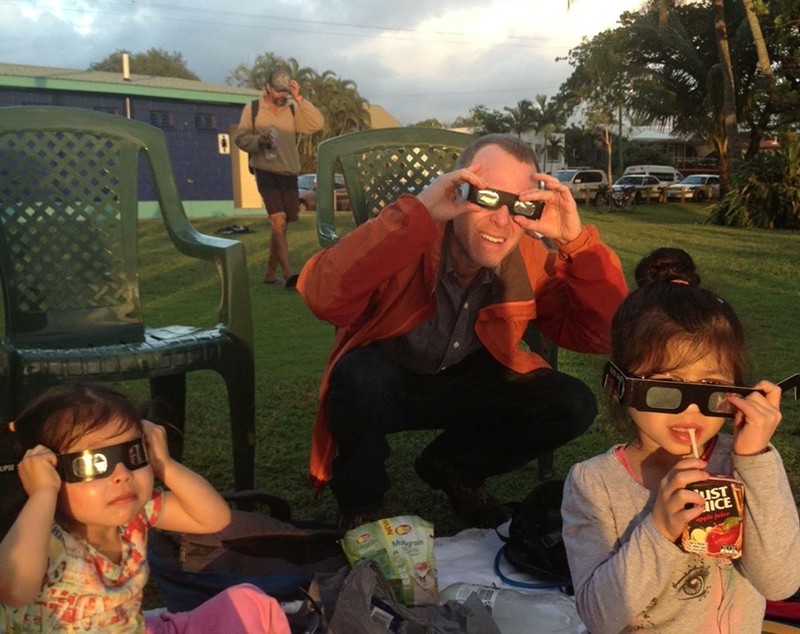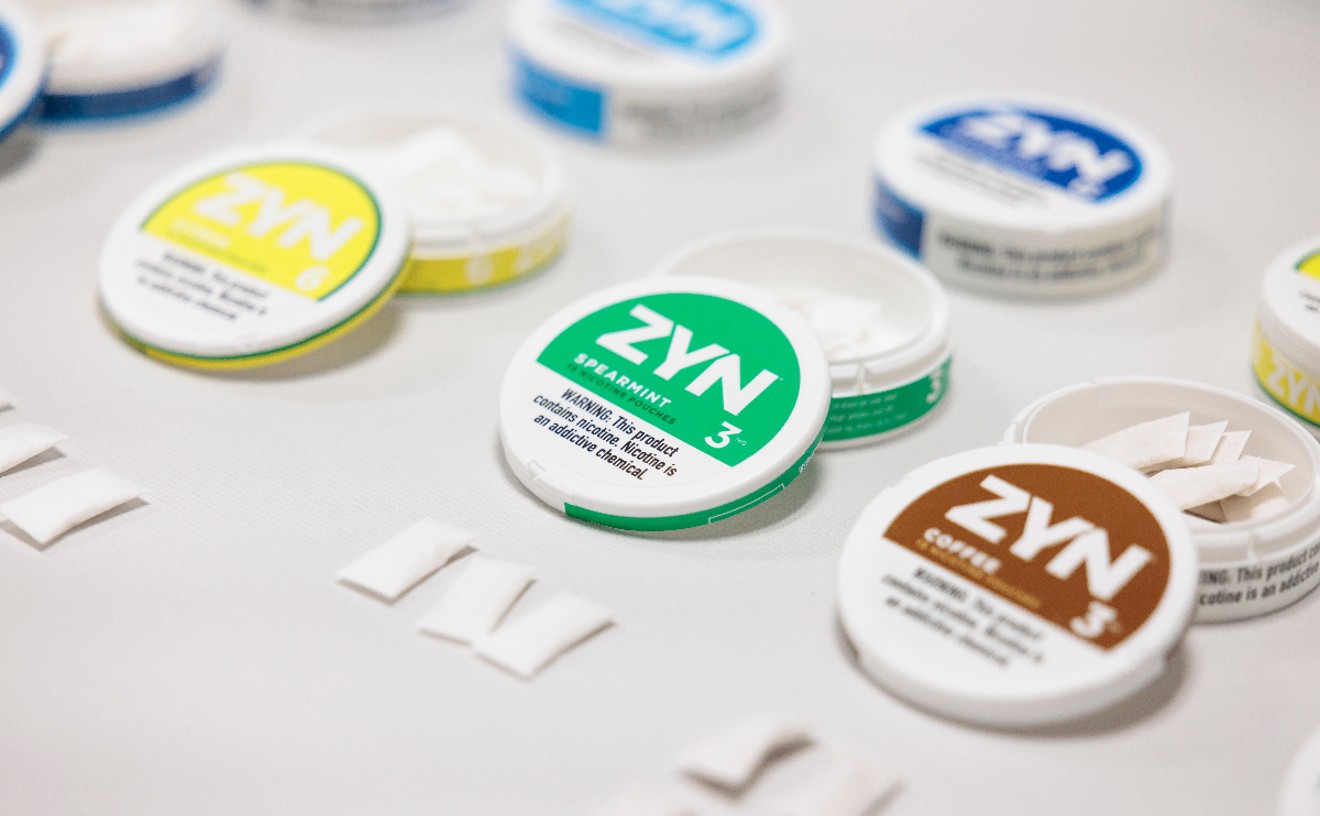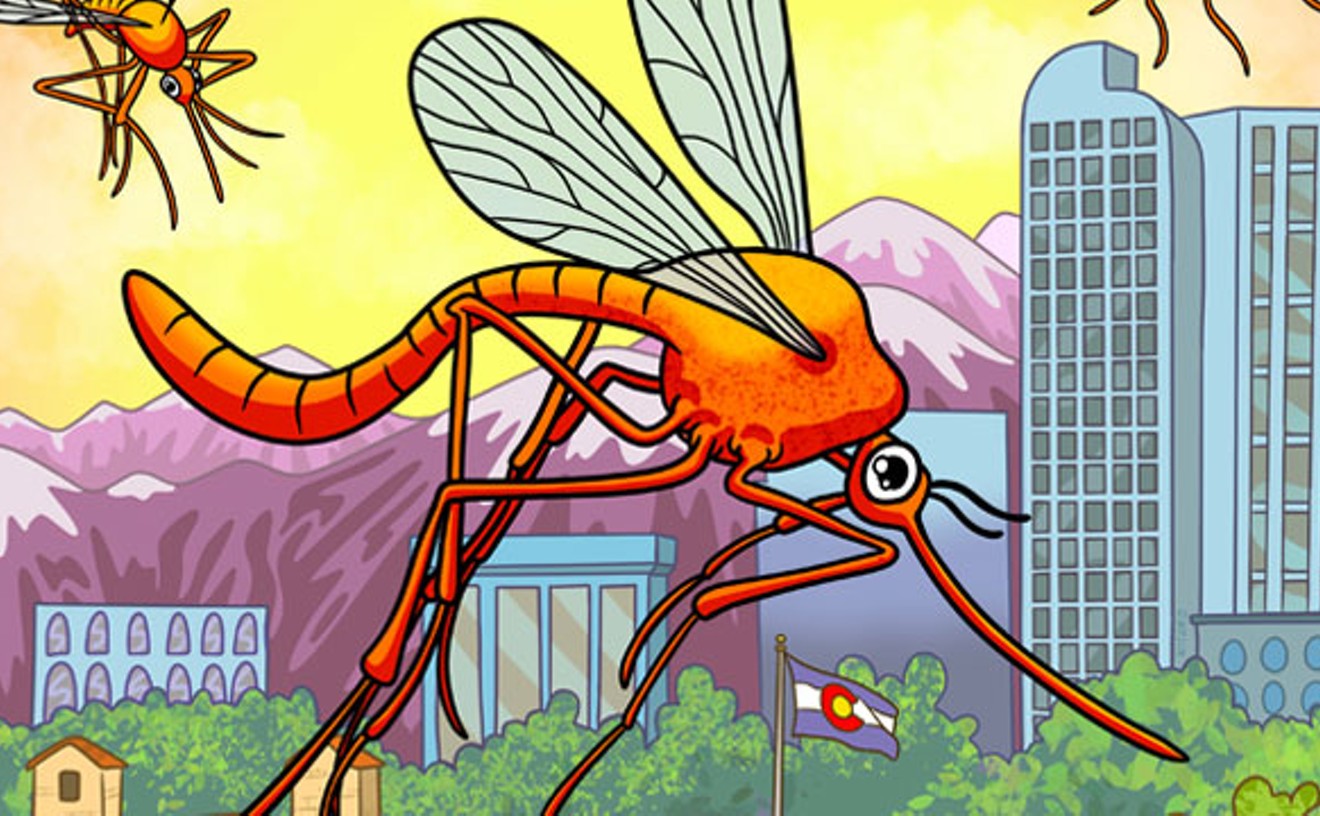In 1998 Baron traveled to Aruba to witness his first total eclipse. The difference was like, well, night and day: While a partial eclipse presents a black thumbnail obscuring a slice of the sun, in a total eclipse the moon covers the face of the sun and the sky plummets into darkness, exposing the spectacular silvery radiance of the corona and a celestial gathering of planets and stars.
"A partial solar eclipse is interesting," Baron says. "A total solar eclipse is mind-blowing. It's the closest thing to space travel that any of us will get to experience. It's like standing on an alien world, looking at a sky you've never seen before. It gives you a whole new perspective on the solar system and our place in the universe."

Baron, the author of American Eclipse, has witnessed five total eclipses of the sun in the past two decades.
Dana Meyer
The idea evolved into this summer's narrative nonfiction sensation American Eclipse: A Nation's Epic Race to Catch the Shadow of the Moon and Win the Glory of the World (Liveright), an account of the high-stakes scientific expeditions that headed to Colorado and surrounding territories to study the 1878 eclipse. Drawing on extensive time spent sifting through old newspaper files and scientific archives, the book features an extensive cast of characters but focuses primarily on the exploits of planet hunter James Watson (who was hoping the eclipse would shed light on the possible existence of a planet he called Vulcan, located between Mercury and the sun), inventor Thomas Edison (touting his latest gadget), and pioneering female astronomer Maria Mitchell.
"I didn't start out knowing it would be archival," Baron says of his book. "But I discovered the best eclipse stories came from the nineteenth century, when scientists launched these elaborate expeditions to sit in the moon's shadow for three minutes and conduct their important studies."
Baron isn't the only author with local ties to revisit the Wild West adventures surrounding the 1878 eclipse; Colorado Springs native and astronomy historian Steve Ruskin covers similar ground in America’s First Great Eclipse: How Scientists, Tourists, and the Rocky Mountain Eclipse of 1878 Changed Astronomy Forever (Alpine Alchemy Press), including the fervor in his home town as tourists and scientists tried to observe the phenomenon from the top of Pikes Peak. Both books serve to whet the appetite for what's to come on August 21, the first solar eclipse in a century to cross the entire breadth of the continental United States. It's expected to be the most widely watched eclipse in human history.
Unfortunately, the path of totality doesn't cross Colorado. Good viewing areas in Nebraska and Wyoming are only a few hours' drive away, but lodging is already sold out in many places, and traffic is expected to be heavy. Baron plans to be on a mountaintop above Jackson Hole, Wyoming, where he booked accommodations three years in advance. His website is full of helpful links about what to expect, where to obtain eclipse glasses (essential for viewing until the sun is fully in shadow), how to connect with fellow umbraphiles, and other fun topics.
"I think it's going to be a real crush of people," Baron predicts. But he still urges people to check it out if they can; after all, the next coast-to-coast solar eclipse won't be until 2045. Says Baron, "I regret all the eclipses I missed before 1998, before I realized that I wanted to make this a priority in my life."












